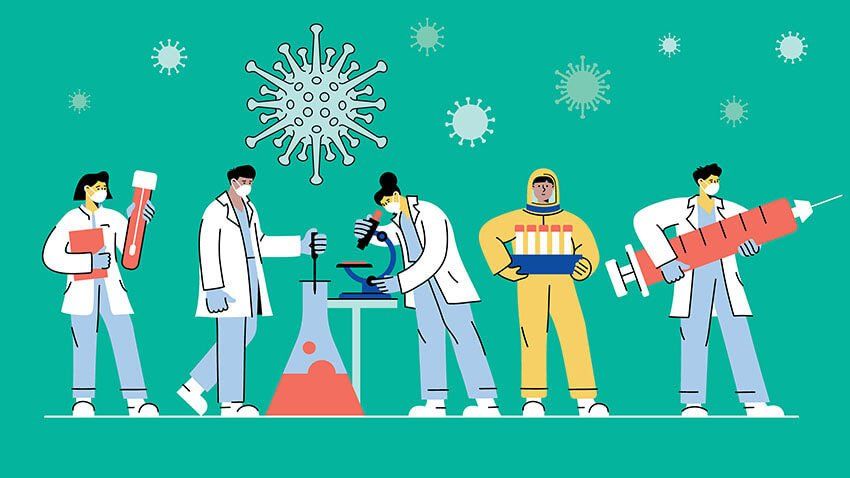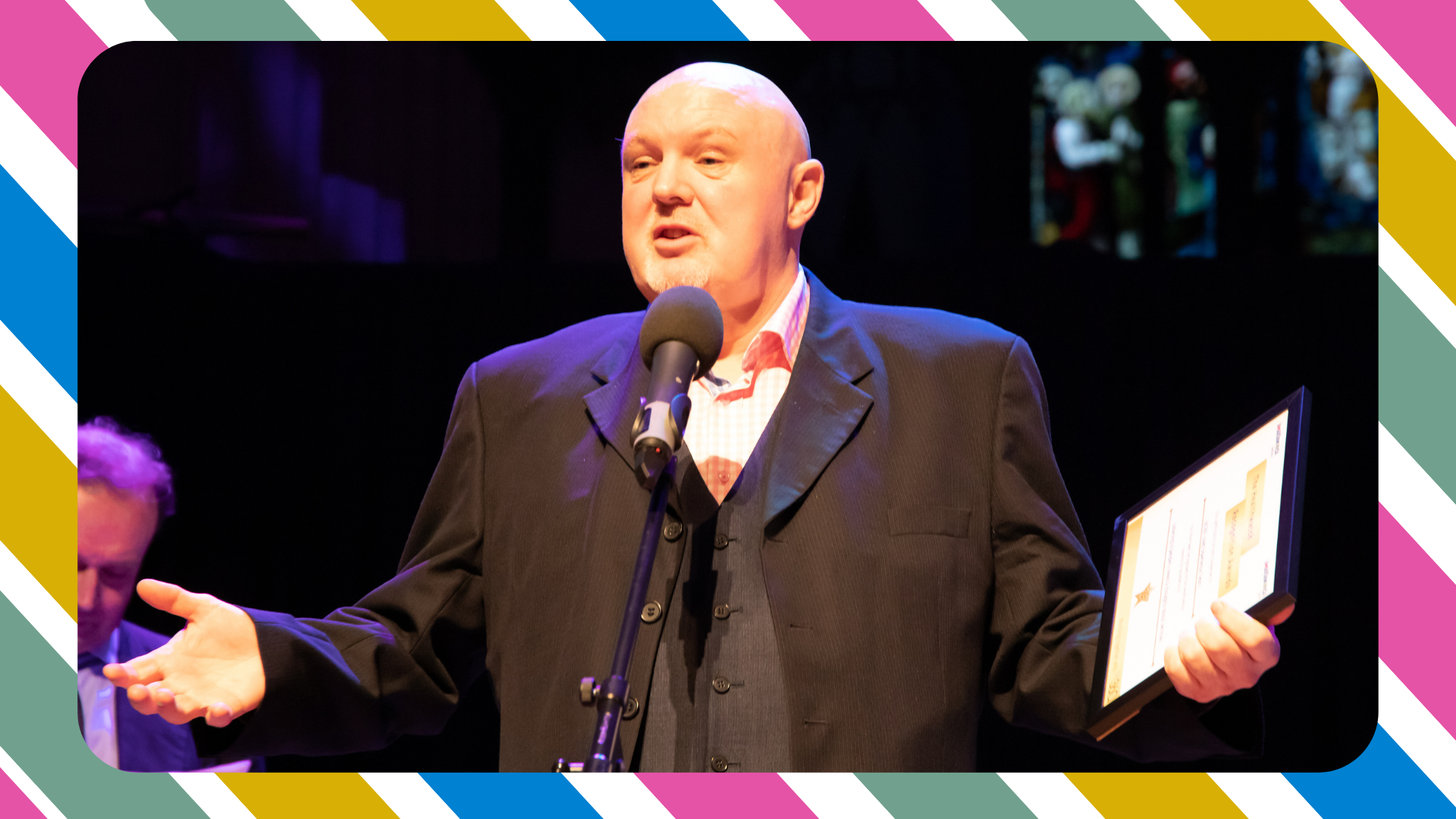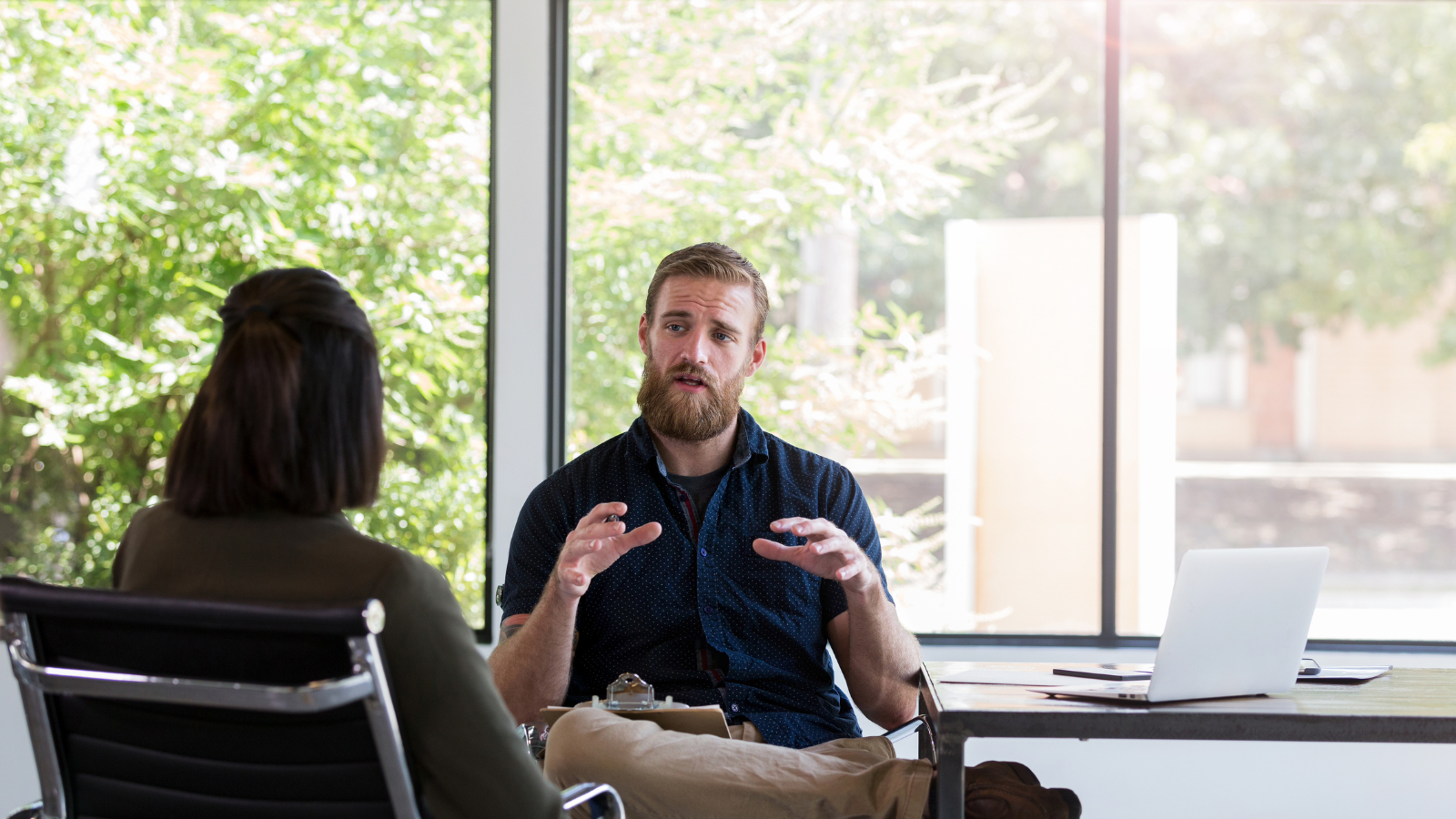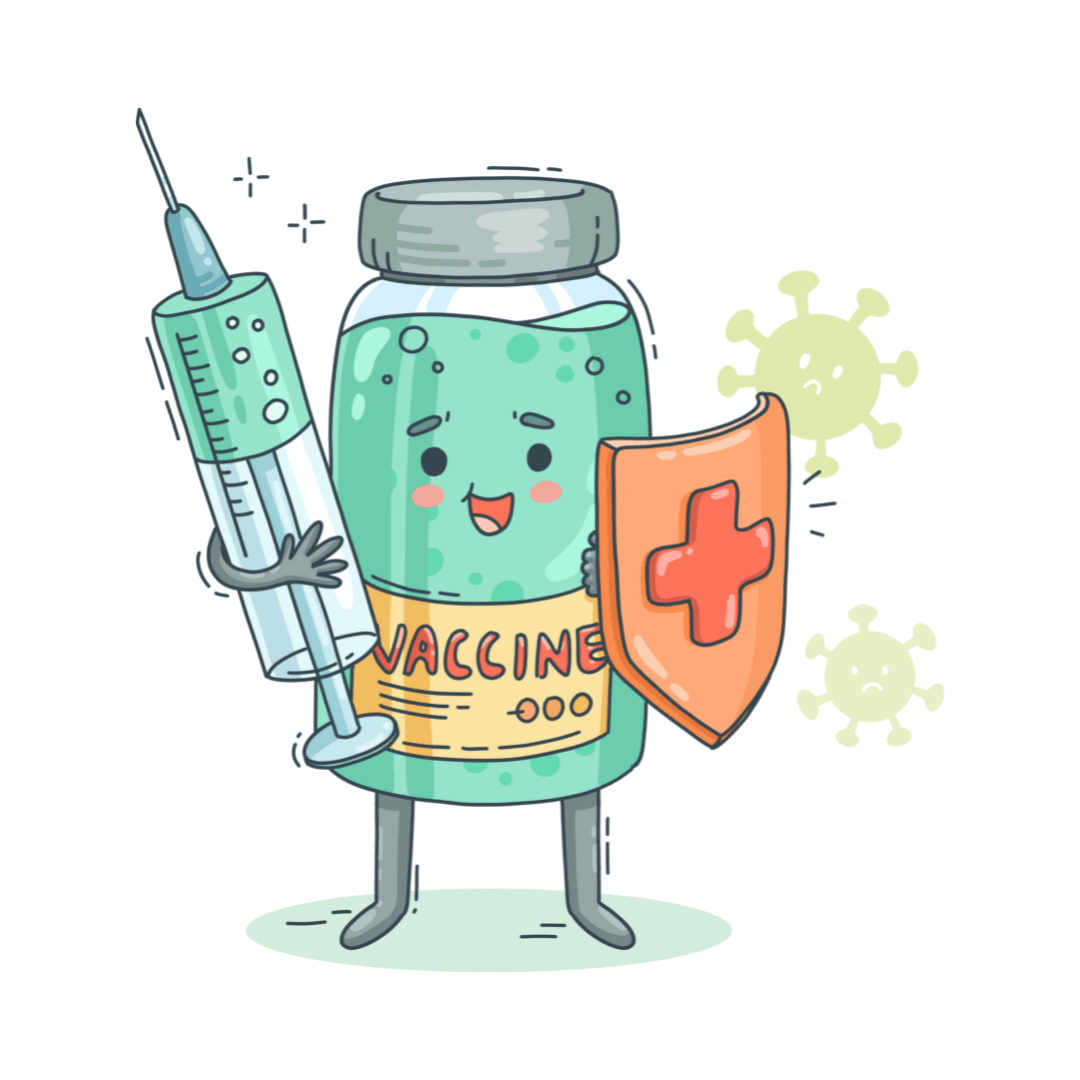COVID-19 vaccine: what you need to know
Engaging Kent • 20 January 2021
Take a look about what you need to know about the COVID-19 vaccination programme including how you will know when it's your turn, where to go, and why it's important.

We all have an important part to play to help the NHS deliver their vaccine delivery plan:
- Please do not contact the NHS to seek a vaccine, the NHS will contact you;
- When you are contacted, please book and attend your appointment(s);
- Turn up to your appointment on time, do not arrive early or late as the vaccination centres cannot accommodate you.
Regardless of whether or not you have been vaccinated, you must continue to follow the Government advice around COVID-19 restrictions.
For the latest information about the vaccine go to the NHS website.
Frequently Asked Questions: COVID-19 vaccine
Here are some FAQs to help you get the information you need to know about the biggest vaccination programme in history.
When will I get the COVID-19 vaccine?
The NHS has a clear vaccine delivery plan and will contact you when it's your turn to get the vaccine as quickly and easily as possible.
The Government will continue to follow the scientific advice and vaccinate those most at risk first, and those who work closest with them - care home residents and staff, followed by people over 80 and health and social care workers, then other people in order of age and risk. You can find the full prioritisation list here.
Do not contact the NHS first, they will contact you.
How might I be contacted to get my vaccination?
- Local hospital services - you might be contacted either to have the vaccine as an inpatient or at an outpatient appointment.
- Local GP services - practices in your area are working together to contact and offer the vaccine to as many people as possible. This may be at a different surgery than you usually go to, or at a venue that has been set up specially to deliver vaccines.
- Through your care home - GPs and their teams are also arranging to vaccinate care home residents directly, in their homes.
Where do I go to get my vaccine when I’m contacted?
Hundreds of local vaccination services run by family doctors and their teams have opened across the UK, as well as specific vaccination centres.
You will be given information by the NHS about where you need to go for your vaccination appointment(s) when contacted. If the option given is not suitable, you can request for a more local centre for your appointment.
I’ve contacted the national booking service but I can’t travel to one of the locations that are available, what should I do?
More locations will become available in the coming weeks so you could try again later.
Alternatively, you can choose to wait until your local GP service invites you for the vaccine.
Find out how many people have had the COVID-19 vaccine
The NHS publishes a weekly report on vaccination numbers. To find out the latest numbers click here.
How long between my first and second dose of the vaccine?
You will receive your second dose 12 weeks after the first, regardless of the vaccine type. The second dose completes the course and is important for longer term protection.
Are there any side effects?
Like all medicines, vaccines can cause side effects. Most of these are mild and short-term, and not everyone gets them.
You should not have the vaccine if you've ever had a serious allergic reaction to:
- a previous vaccine
- a previous dose of the same COVID-19 vaccine
- some medicines, household products or cosmetics
Serious allergic reactions are rare. If you do have a reaction to the vaccine, it usually happens in minutes. Staff giving the vaccine are trained to deal with allergic reactions and treat them immediately.
I'm pregnant, can I still get the vaccine?
There's no evidence the COVID-19 vaccine is unsafe if you're pregnant. But more evidence is needed before you can be routinely offered the vaccine.
Protect yourself from fraud
In England, the COVID-19 vaccines will only be available via the NHS. You can be contacted by the NHS, your employer, a GP surgery or pharmacy local to you, to receive your vaccine.
Remember, the vaccine is free of charge. At no point will you be asked to pay.
- The NHS will never ask you for your bank account or card details.
- The NHS will never ask you for your PIN or banking password.
- The NHS will never arrive unannounced at your home to administer the vaccine.
- The NHS will never ask you to prove your identity by sending copies of personal documents such as your passport, driving licence, bills or pay slips.
Now that we are rolling out vaccines across the UK, can we end restrictions and lockdowns?
The full impact on infection rates will not become clear until a large number of people have been vaccinated with two doses, but as larger numbers do get vaccinated, we will hopefully move further along the path back to a more normal way of life.
Are the Government introducing vaccine passports?
There are no plans to introduce immunity passports following the COVID-19 vaccination programme.
Do I have to have the COVID-19 vaccine even though I've already had COVID-19?
An effective vaccine is the best way to protect people from COVID-19, reduce hospitalisations and save lives. Vaccines are the only way to eradicate disease.
People that have already had COVID-19 should still get vaccinated. It is still just as important for those who have already had COVID-19 as it is for those who haven’t.
Is the COVID-19 vaccine compulsory?
There are no plans to make the COVID-19 vaccine compulsory.
What does a vaccine do?
Vaccines teach your immune system how to create antibodies that protect you from diseases. It's much safer for your immune system to learn this through vaccination than by catching the diseases and treating them. Once a vaccine has trained your immune system to know how to fight a disease, it can often protect you for many years.
Are vaccines safe?
Vaccines are now safer than ever before. Any vaccine must first go through the usual rigorous testing and development process and be shown to strict standards of safety, quality and effectiveness before it can be deployed.
Have you had your vaccine yet? Are you concerned about your vaccine?
Get in touch with our friends at Healthwatch Kent, they would love to hear from you. By sharing your story, they can make sure the vaccine programme works as well as possible for everyone.
Call them for free anytime on 0808 801 0102
Alternatively, you could share your feedback with them here.

International focus on young people's health On the 10-12th July at the University of Reading, delegates, including academics, policy makers, youth workers, dignitaries and members of the Commonwealth Secretariat were invited from across the Commonwealth to discuss the power of youth work. Over the course of three days there were presentations and breakout rooms where global youth work was discussed and learning was shared. Local voices Munya Badze, Kent and Medway System Youth Volunteering Project Manager, and Tamsyn Phillips, Lived Experience Lead for Young Adults for the Kent and Medway’s Children and Young People’s ICB were invited to present, and presented on building partnerships using the youth voice to support health outcomes for young people; an approach from Kent and Medway. Impact People fed back that they felt inspired and would definitely consider using lived experience in their work going forward, which is a positive step in the right direction in incorporating youth voice directly into youth work. Global networks were made and Munya and Tamsyn are looking forward to connecting further with fellow delegates.

Neurodiversity is highly misunderstood and is commonly understood as another term for autism. We have produced a resource for those wanting to understand or seek support for Neurodiversity. To introduce this we wanted to address some of the common myths and misunderstandings about autism. Autism is not an illness Being autistic does not mean you have an illness or disease. It means your brain works in a different way from other people. It's something you're born with, or first appears when you're very young. If you're autistic, you're autistic your whole life. Autism is not a medical condition with treatments or a 'cure'. But some people need support to help them with certain things. People with autism may act in a different way to other people. Autistic people may: find it hard to communicate and interact with other people find it hard to understand how other people think or feel find things like bright lights or loud noises overwhelming, stressful or uncomfortable get anxious or upset about unfamiliar situations and social events Take longer to understand information Do, or think, the same things over and over If you think you, or your child, may be autistic, you can get more advice about the signs of autism here. Being autistic does not have to stop you having a good life. Like everyone, autistic people have things they're good at as well as things they struggle with. Being autistic does not mean you can never make friends, have relationships or get a job. But you might need extra help with these things. We want to hear your story Have you or loved one experiences of neurodiversity and/or autism? We want to hear your story We’ve been working for several years now to try and improve the services that support people who have neurodiversity and/or autism, and their families. We can only do that if you tell us your story. We can use your story to make change happen. Get in touch here Where to get support: Find out where to get support here Download Neurodiversity resources here:

On the 25th of May, Kent and Medway Children and Young People’s ICB held a conference to start a conversation around young people’s mental health and wellbeing, which was co-organised by EK360’s Lived Experience Lead for Young Adults. The event was held at Repton Connect Community Centre in Ashford, and had a turn out of over 100 people, including stakeholders, young people, and volunteers from a local secondary school. The all-day event had speakers from TONIC, NHS England, Involve and more. In attendance were also members of LGBTQ+ support group Prysm and young counsellor Ruby Porter from the Faversham Counselling Service. However, the most striking speakers were the young people that had volunteered to share their experiences. Ryan, a service user at Involve, spoke to us about his experience of struggling with mental health issues, and explained how Involve had made a big difference in his life. Shivali shared with us her experience of having mental health issues through university, and how she struggled to find resources that helped – she now advocates for better resources and runs a student union group that supports others that are struggling with their mental health. Another notable presentation was held by two students from the Hundred of Hoo Academy. Tegan and Isabelle presented their experiences of being young people with mental health issues, and explained how they felt there was not enough support for young people dealing with these issues. They went above and beyond in their presentation, even demonstrating a survey that they had created, asking their fellow students whether they were satisfied with the support they had received from young people’s mental health services. The overwhelming response from the entire day was NO. At the end of the event, we were asked to fill out feedback forms and write down what we think ‘It would be better if...’ for the young adults mental health services. This will all be collated and anything actionable will then be used to inform what people want from future events. We will be continuing the conversation going forward.

Attendees, including the Leaders of both Medway & Kent County Council, applauded alongside senior representatives from every NHS organisation in Kent & Medway. Community and voluntary groups, as well as the individuals who had done the work, joined in the celebrations at Revelations in Ashford. 32 people and organisations were winners at the prestigious Healthwatch Recognition Awards amongst them were two awardees known to our Mental health Voice Network: East Kent Mind and a Team working around Lived Experience supported by the ICB/KMPT and EK360. We have put together profiles of these projects. They are built into a resource on Mental Health support covering: Guidance around Mental Health Crisis x2 Healthwatch heroes: Mental Health Links to further information

Improving Access to Psychological Therapies (IAPT) , recently renamed as NHS Talking Therapies, wants to bring the voice of people who use the services to the heart of service development. Your feedback will be used to help shape and develop NHS Talking Therapies services and how they link into wider community mental health services. You need to read about this invitation to influence your service and share your thoughts if you are: Currently receiving therapy through NHS Talking Therapies Have been referred to NHS Talking Therapies and am currently on a waiting list Have been referred to NHS Talking Therapies in the past but was unable to use the service Previously received therapy through NHS Talking Therapies A survey has been co-produced by people who have used NHS Talking Therapies (Formerly IAPT) and the Mental Health Lived Experience Team hosted by EK360. EK360 is a community interest company based in Kent who work with health and social care organisations across Kent and Medway. To complete the survey and share your views click here. The current closing date for this survey is Friday 31st March. Your feedback will help us to shape the future of NHS Talking Therapies (formerly known as IAPT) across Kent & Medway. Recommendations will go to local NHS Talking Therapies providers about how the service can support its patients more effectively. The Mental Health Lived Experience Team are currently working with local commissioners to gather feedback about using the NHS Talking Therapies (formerly known as IAPT) service in Kent and Medway. All your feedback will be confidential and anonymised and will be used to inform the development of NHS Talking Therapies as well as the pathway between NHS Talking Therapies and Community Mental Health services as part of the Community Mental Health Framework Transformation. If you have any questions about the survey or would rather arrange a one to one chat with a member of the Lived Experience Team to discuss your experiences, please email livedexperience@ek360.co.uk and someone will be in touch with you in a few days.

This February and March, face to face and online opportunities are available to share your experiences and influence services for those in crisis around their mental health. Someone from NHS Kent and Medway will be available to listen on the following dates: In-person: Margate Media Centre Tuesday 28th February, 1pm Online: via Zoom Tuesday 7th March, 1pm Future meetings are hoped for in Ashford and Dover/Deal. The shape of Crisis care is extremely important to the Mental Health Community. SpeakUpCIC are hosting these two forums to allow you to share directly with NHS Kent and Medway NHS Kent and Medway is bringing people’s experiences together to help shape changes in Crisis care services and improve how Section 136 is included by the NHS as a form of response to mental health crisis. To be heard, please email aram@speakupcic.co.uk or maggie@speakupcic.co.uk or call 01843 448384 . State your preference for face to face or the online forum. You will be contacted prior to the forum to confirm details. If you are uncertain as to whether you have accessed Crisis Services or Care and want to learn more about Section 136, please click here

If you live in Tonbridge There’s now a temporary Covid clinic in the Sovereign Way North Car Park. If you’re eligible for the autumn booster, they are open on Tuesday afternoon (2-6pm), Thursday afternoon (2-6pm) & Saturday mornings (9am – 2pm). You can just walk in, or book here If you live in Dover & Deal There are four temporary clinics, and they are all welcoming walk in appointments. You can find them at: Sundays at St James Retail Park in Dover from 10am to 4pm. Mondays at the Dover Health Centre from 10am to 4pm Tuesday at Deal Hospital 10am to 4pm. Wednesday at Buckland Hospital from 10am to 4pm If you are housebound GPs, pharmacists and community organisations are busy visiting people who are housebound to offer the autumn booster. It does take time to get round to everyone, so the NHS is asking people to be patient. They’re aiming to reach everyone who is eligible by early December. There is no need to chase your GP just yet.

The service launched on June 17th and allows d/Deaf people to access the emergency services with the help of a remote BSL interpreter. It has been judged to be revolutionary in the rights of d/Deaf people. How to use it There are two ways to use it. The first way is to access it via the app. The app is simply called 999 BSL and is available on IOS and Android systems. So after pre-downloading the App, in the event of having to use it simply open the app and press the red button which says ‘Call 999 BSL Now’ and then connect to a fully qualified interpreter. The second way to use the service is via the website https://999bsl.co.uk. Once accessing the website it is the same basic idea as via the app. Click the red button saying ‘Call 999 BSL Now’ and connect to a fully qualified interpreter. When to use it It is designed to be used when the services of an ambulance, police, fire or coastguard are needed because someone is seriously injured, a life or lives are at risk, a person themselves is in danger or at risk of immediate harm or a serious criminal offence is occurring or has just occurred. If it is less urgent please use Police 101 or NHS 11 (Using Sign Video). Other Important information: The service is available at all times with no downtime. The service allows call backs to be used. For that, the app or website must not be closed during the waiting period after the initial call has been made. If the app or website is closed, the call back cannot take place. You’ll need Wifi or 5G/4G/3G/2G data to make it work. Due to legal reasons all calls are recorded. If something goes wrong with the system, then text relay can still be used. All calls are free and do not affect your date usage. If you have been charged then please contact your mobile provider as it is illegal to charge for the data use relating to this service. The location of every call is tracked to protect the users of the service. For more info, visit https://999bsl.co.uk

The Council is considering raising our Council Tax by 3%. Although they have a budget of £1.8 billion for the year ahead, it's not enough to fund everything. The Council want to hear your thoughts about its proposals and help them decide how to spend their funds. Get more information and share your thoughts here


